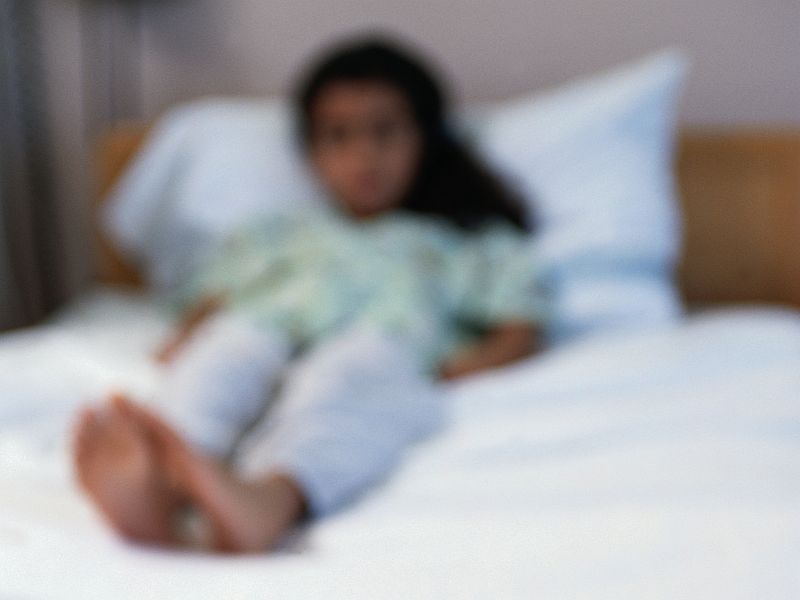Relaxation Might Not Be Greatest for Children After Concussion
 By Kathleen Doheny
By Kathleen DohenyHealthDay Reporter
TUESDAY, Dec. 20, 2016 (HealthDay Information) -- Full relaxation is a cornerstone of concussion remedy, however a brand new research signifies that bodily exercise inside every week of a youth's head damage could hasten restoration.
Concussed youngsters and youths had been much less more likely to have persistent signs 4 weeks later in the event that they engaged in mild cardio train inside the first seven days, in response to the brand new analysis from Canada.
Underneath present pointers for concussion administration, pediatricians advocate a interval of bodily and psychological relaxation till signs similar to headache resolve.
The brand new findings "name into query the usual working process the place athletes must be symptom-free earlier than they're allowed to begin exertion," stated Dr. John Kuluz.
Kuluz is director of traumatic mind damage and neurorehabilitation at Nicklaus Kids's Hospital in Miami. He wasn't concerned within the research.
Though the researchers discovered a hyperlink between early bodily exercise and fewer long-term signs, Kuluz stated the research cannot show cause-and-effect.
"I am not likely going to alter my follow primarily based on this," he stated. In actuality, he stated, plenty of docs are already following this method as an alternative of advising whole relaxation till signs disappear.
And nobody is advising vigorous train, Kuluz stated.
After a concussion, "I feel getting up off the sofa and transferring, at low depth, for brief period, one or two instances a day, is necessary," he defined. "It helps to cut back the deconditioning."
He additionally added, "It must be accomplished on an individualized foundation."
Primarily based on the discovering, research writer Dr. Roger Zemek stated mild jogging, strolling or mild exercise on a stationary bike in all probability can be OK after a concussion.
Zemek is a senior scientist and director of the scientific analysis unit at Kids's Hospital of Japanese Ontario in Ottawa.
Past skilled enter, he stated, "there may be little or no proof'' to assist the recommendation to keep away from bodily exercise after a concussion.
To see what impact exercise might need on restoration, Zemek's workforce analyzed knowledge on greater than 2,400 Canadian children, ages 5 to 17, who suffered a concussion.
The researchers reviewed persistent post-concussive signs and ranges of bodily exercise within the month after the pinnacle damage. Persistent post-concussive signs (PPCS) had been outlined as three or extra signs, similar to headache or issues pondering or studying.
After 28 days, 25 p.c of those that engaged in early bodily exercise nonetheless had persistent or worsening signs, Zemek stated. Within the no-activity group, 44 p.c nonetheless had signs. That distinction was vital statistically, he stated.
The research was revealed Dec. 20 within the Journal of the American Medical Affiliation.
Zemek is not suggesting children who are suffering a concussion return to athletic play shortly.
"What I do not need is somebody to learn this and say, 'Oh, I'll let Johnny play soccer tomorrow [right after a concussion] as a result of there is no such thing as a hurt,'" he stated.
Mild bodily exercise early on could assist cut back persistence of signs, Zemek famous.
Whereas the research did not assess one of the best depth or period of train, Zemek thinks that partaking in mild exercise sooner than is at the moment advisable by many specialists might have bodily and psychological advantages.
The youngsters really feel much less like they're in jail at residence, for one factor, he stated.
This method is used efficiently in post-stroke sufferers, Zemek added, explaining docs need them off the bed and transferring as quickly as potential.
Why does this appear to assist? Zemek could not say for positive, however stated he suspects exercise could enhance blood circulation to the mind, which might help therapeutic.

Copyright © 2016 HealthDay. All rights reserved.
SOURCES: Roger Zemek, M.D., senior scientist, Kids's Hospital of Japanese Ontario Analysis Institute, affiliate professor, pediatrics and emergency medication, College of Ottawa, Canada; John Kuluz, M.D., director, traumatic mind damage and neurorehabilitation, Nicklaus Kids's Hospital, Miami; Dec. 20, 2016, JAMA
No comments:
Post a Comment